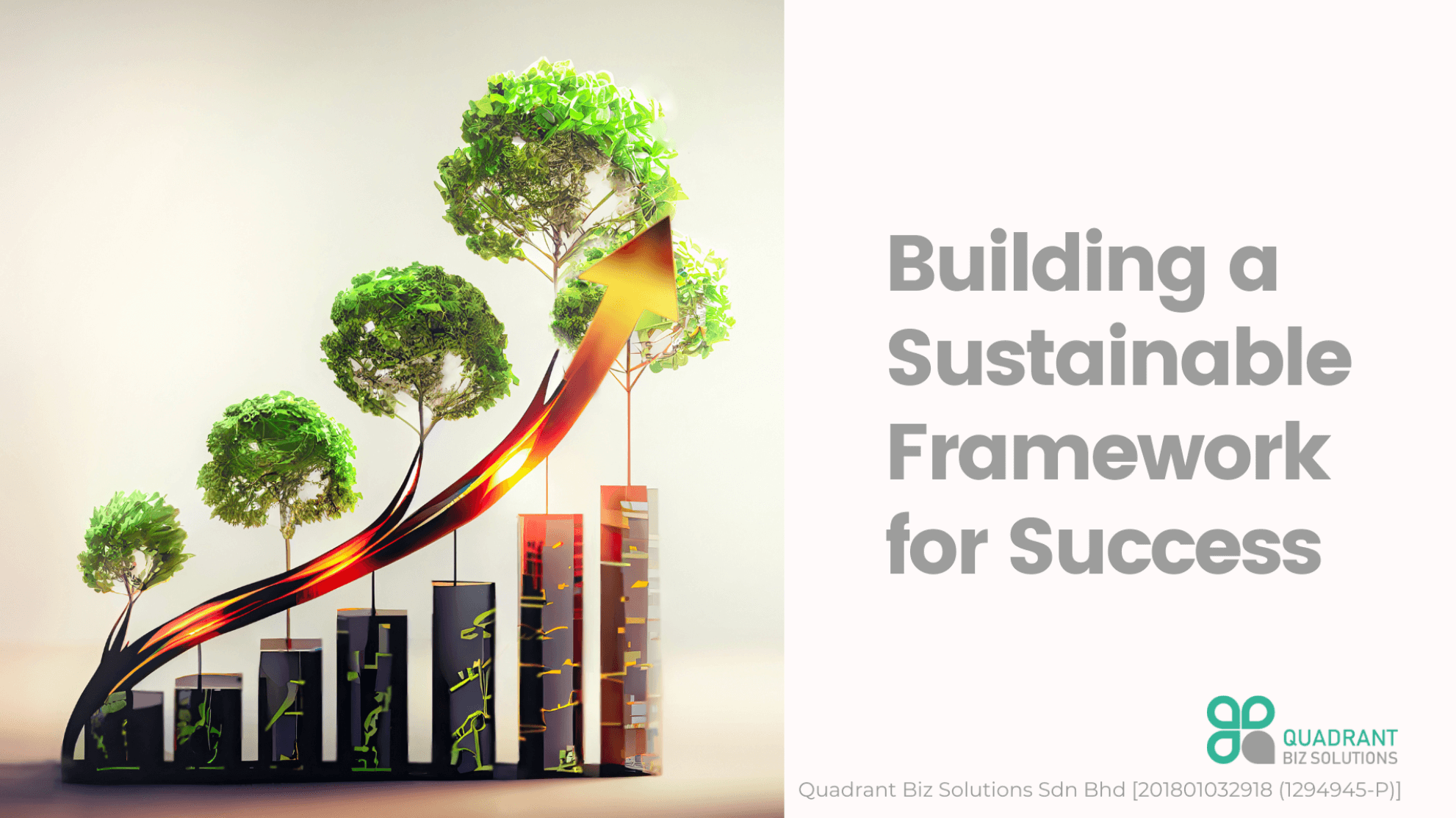Now that we understand the importance of sustainability in business, it’s time to delve into the practical aspects of implementing and measuring sustainability practices. To ensure a robust and effective sustainability strategy, businesses need to lay the foundation with the right framework, incorporating good practices and measurement metrics.
Quadrant Biz’s IA group specialises in supporting ESG framework/compliance, providing valuable expertise in aligning your business with sustainable practices. For more information, kindly visit https://quadrantbiz.co/internal-audit/ or contact us directly via email at hello@quadrantbiz.co.
1. Conduct a sustainability assessment
Before implementing any sustainability initiatives, it’s crucial to conduct a comprehensive sustainability assessment. This involves evaluating current practices, identifying potential areas for improvement, and setting clear goals. To navigate this assessment effectively, businesses can leverage the Bursa Malaysia Sustainability Reporting Guide. This guide not only provides a framework aligned with international standards but also addresses the distinct challenges and opportunities in Malaysia.
Furthermore, businesses can enhance their sustainability assessment by employing tools such as the Global Reporting Initiative (GRI) standards or the Sustainability Accounting Standards Board (SASB) framework. These resources provide valuable guidance throughout the assessment, ensuring that businesses cover key aspects such as environmental impact, social responsibility, and economic viability.
2. Establish clear sustainability goals
Once the assessment is completed, businesses should establish clear and measurable sustainability goals. These goals should align with the core values of the company and be realistic. For example, a goal could be to reduce carbon emissions by a certain percentage, increase the use of renewable energy, or enhance diversity and inclusion within the workforce. Setting specific targets provides a roadmap for implementation and allows for effective monitoring.
3. Integrate sustainability into business operations
Sustainability should not be treated as a standalone initiative but integrated into every aspect of business operations. This includes supply chain management, product design, manufacturing processes, and employee practices. For instance, companies can work with suppliers who share their commitment to sustainability, design products with a focus on recyclability, and implement energy-efficient practices in daily operations.
4. Implement sustainable practices and technologies
To achieve sustainability goals, businesses need to implement specific practices and technologies. This could involve adopting renewable energy sources, implementing waste reduction and recycling programs, and incorporating sustainable materials into products. Embracing innovative technologies can enhance efficiency and reduce environmental impact. Regularly assess and update these practices to stay at the forefront of sustainability advancements.
5. Monitor and measure progress
Measurement is key to successful sustainability initiatives. Regularly monitor and measure progress against established goals. Utilise key performance indicators (KPIs) relevant to your business, such as carbon footprint reduction, energy efficiency, or employee satisfaction. Implementing a robust tracking system ensures transparency and accountability, allowing businesses to make informed decisions based on real-time data.
6. Engage stakeholders and communicate progress
Engage with internal and external stakeholders to build a shared commitment to sustainability. Communicate progress transparently through various channels, including annual sustainability reports, social media, and corporate communications. Engaging customers, employees, investors, and the broader community fosters a sense of shared responsibility and enhances the company’s reputation.
7. Invest in employee training and awareness
Sustainability initiatives are most effective when employees are well-informed and actively engaged. Invest in training programs to educate employees about the company’s sustainability goals, the importance of their role, and how they can contribute. Foster a culture of sustainability where employees feel empowered to bring forward ideas and initiatives.
Bursa Malaysia mandatory ESG reporting
Public-listed companies (PLCs) in Malaysia must now use the Bursa Malaysia ESG Reporting Platform to meet mandatory sustainability disclosure requirements mandated by Bursa Malaysia. This platform functions as a repository for disclosures, aligning with the enhanced sustainability reporting requirements introduced last year for Main Market and ACE Market PLCs. Read more here.
Sailing towards a sustainable horizon
Building a sustainable framework for success requires a holistic approach, integrating sustainability into the DNA of the business. By conducting assessments, setting clear goals, implementing practices, measuring progress, and engaging stakeholders, businesses can not only meet current sustainability challenges but also prepare for a resilient and sustainable future. Sustainability is not a one-time effort but an ongoing journey that evolves with the business and the world around it.

